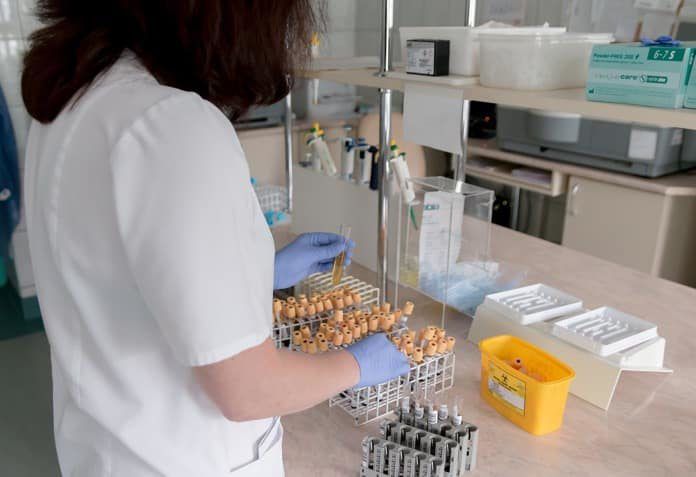A biopsy is routinely performed in patients to determine cancer type and aggressiveness. Common biopsies are invasive and can’t be routinely used on the same patient. A new review published in Science Magazine outlines a new era of biopsies, known as a liquid biopsy, and analyses whether it is accurate as a detection method.
A biopsy is a medical procedure in which physicians extract a small sample of either cells or tissues so that they can be evaluated to diagnosis cancer and determine how advanced it may be. There are a few different biopsy techniques that can be employed to determine cancers, all of which are invasive. In addition, biopsies can’t be used often on the same patient. It is clear to see that improving detection mechanisms or protocols is important.
Can a Blood Test be Used as a Liquid Biopsy?
A recent article in Science Magazine reviews a paper in which researchers have taken on this goal in a straightforward way. They asked whether it was possible to use blood samples as a source of a “liquid biopsy”. Their results were very interesting. They used the fact that there are known DNA mutations that drive cell division in tumor cells and eventually this mutated DNA will have to be released into the blood once the cell dies. But detecting very low amounts of this mutated DNA in the blood is not easy.
The researchers hypothesized that the way to increase detection is to couple the detection of this mutated DNA with other genes or protein. They developed a system, known as CancerSEEK, to used blood as a liquid biopsy by adding eight other known biomarkers of distinct cancers. As expected, this significantly increased the rate of detection. Not only did this protocol increase the rate of detection for cancer, it also allowed the researchers to accurately predict the tissue type of the cancer. Scientists have hailed this technique as clever due to the fact that DNA and protein biomarkers have been coupled for the first time.
Liquid Biopsy Accurately Detects Cancer
Blood samples were retrieved from over 1,000 patients that had been diagnosed with eight different tumor types. The eight cancers that the researchers screened for were: ovarian, liver, stomach, pancreas, esophageal, colorectal, lung, and breast. There was no evidence that their cancer had spread. This liquid biopsy was able to detect anywhere between 33% and 98% of cancers depending on the type of tumor. Strikingly, the rate of detection was 69% of higher for cancer types that are challenging to detect early. The researchers also showed that less than 1% of healthy controls tested false positive. The test is also able to narrow the tissue origin of the cancer down to two possibilities in over 80%. These liquid biopsies would cost $500 per sample, which is relatively inexpensive.
Although this technique is attractive, there are some limitations. One is that the same proteins that are used as biomarkers for cancer are also active in people who have inflammatory diseases. This ultimately means that the 1% false positive rate will most likely increase in a normal population. Another limitation of a liquid biopsy is that patients with smaller tumors are going to release less of the mutated DNA into the blood. Notably, out of all stage one cancers that were tested, only 43% of them were detected by the liquid biopsy.
Despite these limitations, the research team that created the technology believes that these liquid biopsies are ready to be used as a screening tool. They state that a liquid biopsy does not have to be 100% without limitations in order to be useful to patients. They state that for patients that test positive for cancer through a liquid biopsy, the patients can move to next steps such as imaging to locate tumor. These liquid biopsies could potentially be a tool to screen patients in the clinic sooner rather than later.
Written by Ingrid Qemo, BSc
Reference: Kaiser, J. (Jan, 18, 2018). “Liquid biopsy” promises early detection for cancer. Science Magazine. doi:10.1126/science.aat0349.



